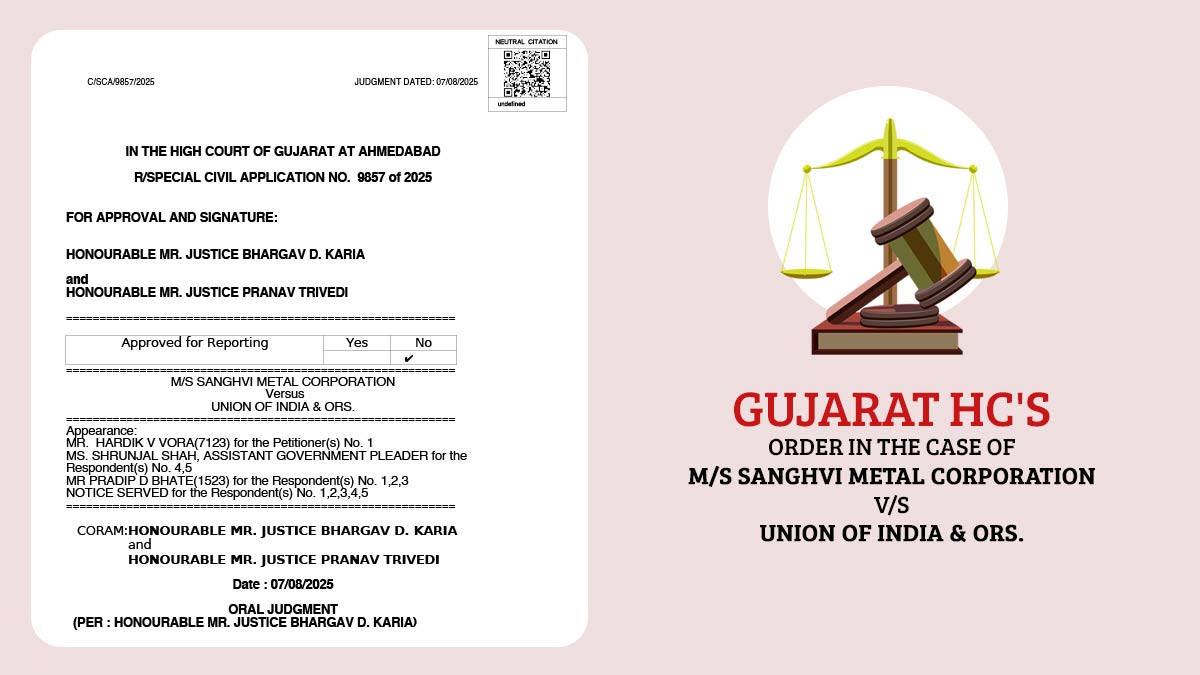
The State Tax officer has issued a show cause notice in Form GST DRC-01 alleging a difference in outward supplies between GSTR-1 and GSTR-3B.
The turnover of its sister concerns has been elaborated by the applicant, who has been incorrectly uploaded in GSTR-1 for December 2017, which has developed the discrepancy. For the ITC mismatches, it was claimed that in FY 2017–18, GSTR-2A was inoperative, and therefore, differences must not be ministered adversely.
On December 20, 2023, an Order-in-Original (Form GST DRC-07) was issued by the respondent, resulting in a demand of ₹40,27,272, which includes both interest and penalties, despite the prior explanation provided.
The petitioner sought relief from the Gujarat High Court, referencing the case of Aberdate Technologies Pvt. Ltd. v. CBIC, which was decided by the Bombay High Court and later affirmed by the Supreme Court in 2025. This case established the principle that bona fide clerical errors in GST returns can be rectified, providing a legal basis for the petitioner’s claim.
Problem- The issue is that, if the applicant is permitted to rectify unintentional clerical errors in GSTR-1, even after expiry of the statutory timelines u/s 39(9) of the GST Act, when such rectification causes no loss of revenue.
Court’s Ruling– The Court observed that the petitioner had unintentionally included the turnover of its sister concern in its GSTR-1 submission. This information was supported by the records of the sister concern, confirming the accuracy of the petitioner’s claims.
Read Also: SC Grants Relief to GST Officials By Removing Gujarat HC’s Critical Comments
Reliance placed on Aberdate Technologies (P.) Ltd. v. CBIC (Supreme Court), Star Engineers (I) Pvt. Ltd. v. UOI, Sun Dye Chem v. AC, GST. These precedents stressed that Section 37(3) and Section 39(9) of the CGST Act need to be interpreted purposively, permitting correction of inadvertent and bona fide mistakes, particularly where no revenue loss happens.
In Aberdate Technologies (supra), the appeal of the CBIC has been dismissed by the Apex court, outlining that clerical/technical errors should be fixable, and the software limitations must not refuse to deny rectification.
The Court, on applying the same reasoning, has permitted the writ petition and directed that the impugned Appellate Order be quashed and set aside. A corrected Form GSTR-1 was permitted to be submitted by the petitioner within four weeks, which will be accepted manually by the Department.
| Case Title | M/S Sanghvi Metal Corporation vs. Union of India & ORS |
| Case No. | No. 9857 of 2025 |
| For the Petitioner | MR. Hardik V Vora |
| For Respondent | MS. Shrunjal Shah |
| Gujarat High Court | Read Order |









